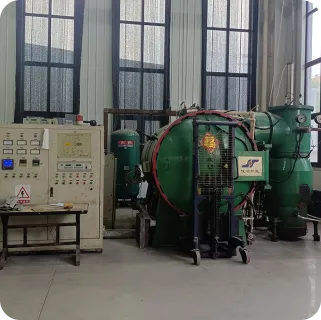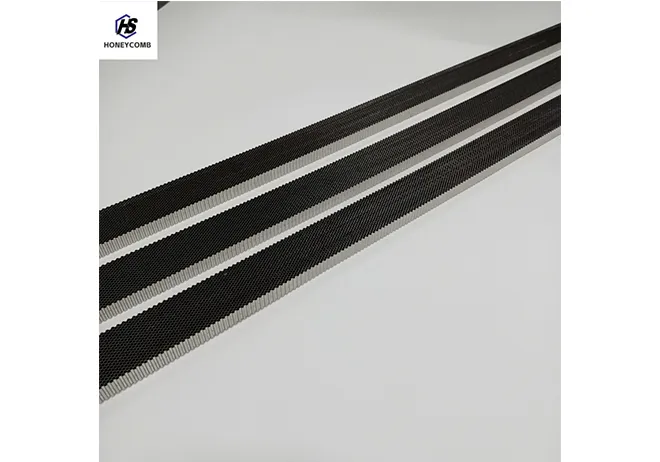
- Afrikaans
- Albanian
- Amharic
- Arabic
- Armenian
- Azerbaijani
- Basque
- Belarusian
- Bengali
- Bosnian
- Bulgarian
- Catalan
- Cebuano
- China
- China (Taiwan)
- Corsican
- Croatian
- Czech
- Danish
- Dutch
- English
- Esperanto
- Estonian
- Finnish
- French
- Frisian
- Galician
- Georgian
- German
- Greek
- Gujarati
- Haitian Creole
- hausa
- hawaiian
- Hebrew
- Hindi
- Miao
- Indonesian
- Italian
- Japanese
- Javanese
- Malay
- Persian
- Portuguese
- Punjabi
- Russian
- Spanish
- Swahili
- Telugu
- Vietnamese

Feb . 20, 2025 07:34
Back to list
emi honeycomb
In the fast-paced world of technology, ensuring optimal performance and reliability is paramount, particularly in electronics. One often overlooked yet crucial component in many electronic devices is the EMI cellular filter. These filters are instrumental in mitigating electromagnetic interference, thus ensuring smooth operation across various applications. This article explores the unique features, benefits, and applications of EMI cellular filters, providing expert insights into how they enhance electronic performance.
In the telecommunications industry, EMI filters are essential for the stable functioning of infrastructure components. They help reduce noise in communication lines, thereby enhancing clarity and reliability. Furthermore, in the automotive sector, the rise of electric and autonomous vehicles has increased the demand for EMI filtering to manage the complex electronic systems within these vehicles safely. The Trustworthiness of EMI Filters When discussing trustworthiness, the material quality and manufacturing standards of EMI cellular filters cannot be overstated. Reputable manufacturers adhere to international standards like ISO and RoHS, ensuring that the filters not only perform optimally but also maintain durability over time. Their compliance with these standards reassures consumers and industry professionals of their reliability and safety. The installation and maintenance of these filters are equally crucial. Ensuring that they are correctly integrated into electronic systems is essential for achieving the desired performance outcomes. Regular maintenance checks can prevent potential failures, further enhancing device longevity. Future Prospects and Innovations The landscape of EMI filtering is evolving with advancements in technology. The future points towards more compact, efficient designs that integrate seamlessly into ever-smaller electronic devices. Additionally, innovations in materials, such as the use of nanotechnology, are set to enhance the filtering capabilities, providing even greater resilience against interference. Experts predict a growing reliance on smart technologies and IoT devices, which will inevitably lead to an increased demand for robust EMI filtering solutions. As technology continues to advance, EMI cellular filters will undoubtedly play an even more central role in ensuring the reliability and efficiency of future electronic devices. In conclusion, EMI cellular filters are an indispensable component in the realm of modern electronics. Their ability to mitigate electromagnetic interference enhances device performance across various industries, from consumer electronics to telecommunications and healthcare. Trustworthy and reliable, these filters are set to remain a cornerstone of electronic design, adapting in line with technological advancements to meet future challenges head-on. For anyone invested in the electronic industry, understanding the significance and functionality of EMI cellular filters is vital to ensuring their devices meet the highest standards of performance and reliability.


In the telecommunications industry, EMI filters are essential for the stable functioning of infrastructure components. They help reduce noise in communication lines, thereby enhancing clarity and reliability. Furthermore, in the automotive sector, the rise of electric and autonomous vehicles has increased the demand for EMI filtering to manage the complex electronic systems within these vehicles safely. The Trustworthiness of EMI Filters When discussing trustworthiness, the material quality and manufacturing standards of EMI cellular filters cannot be overstated. Reputable manufacturers adhere to international standards like ISO and RoHS, ensuring that the filters not only perform optimally but also maintain durability over time. Their compliance with these standards reassures consumers and industry professionals of their reliability and safety. The installation and maintenance of these filters are equally crucial. Ensuring that they are correctly integrated into electronic systems is essential for achieving the desired performance outcomes. Regular maintenance checks can prevent potential failures, further enhancing device longevity. Future Prospects and Innovations The landscape of EMI filtering is evolving with advancements in technology. The future points towards more compact, efficient designs that integrate seamlessly into ever-smaller electronic devices. Additionally, innovations in materials, such as the use of nanotechnology, are set to enhance the filtering capabilities, providing even greater resilience against interference. Experts predict a growing reliance on smart technologies and IoT devices, which will inevitably lead to an increased demand for robust EMI filtering solutions. As technology continues to advance, EMI cellular filters will undoubtedly play an even more central role in ensuring the reliability and efficiency of future electronic devices. In conclusion, EMI cellular filters are an indispensable component in the realm of modern electronics. Their ability to mitigate electromagnetic interference enhances device performance across various industries, from consumer electronics to telecommunications and healthcare. Trustworthy and reliable, these filters are set to remain a cornerstone of electronic design, adapting in line with technological advancements to meet future challenges head-on. For anyone invested in the electronic industry, understanding the significance and functionality of EMI cellular filters is vital to ensuring their devices meet the highest standards of performance and reliability.
Prev:
Next:
Products categories
Latest news
-
Why Vented Aluminum Honeycomb Is Leading the Way in Shielding and Ventilation SolutionsNewsJul.18,2025
-
Why Stainless Steel Honeycomb Panel is the Ultimate Choice for High-Tech Shielding and ProtectionNewsJul.18,2025
-
Why Honeycomb Strips Are Revolutionizing High-Speed Sealing SolutionsNewsJul.18,2025
-
Shielded Glass Innovation Powers the Future of Electromagnetic ProtectionNewsJul.18,2025
-
Precision Starts Here: Revolutionizing Airflow Control with Honeycomb Wind Tunnel SolutionsNewsJul.18,2025
-
Elevate Industrial Performance with Precision-Engineered Steel Honeycomb Core SolutionsNewsJul.18,2025
-
Vented Aluminum Honeycomb: A Smart Shield for Airflow and EMI ControlNewsJul.11,2025















